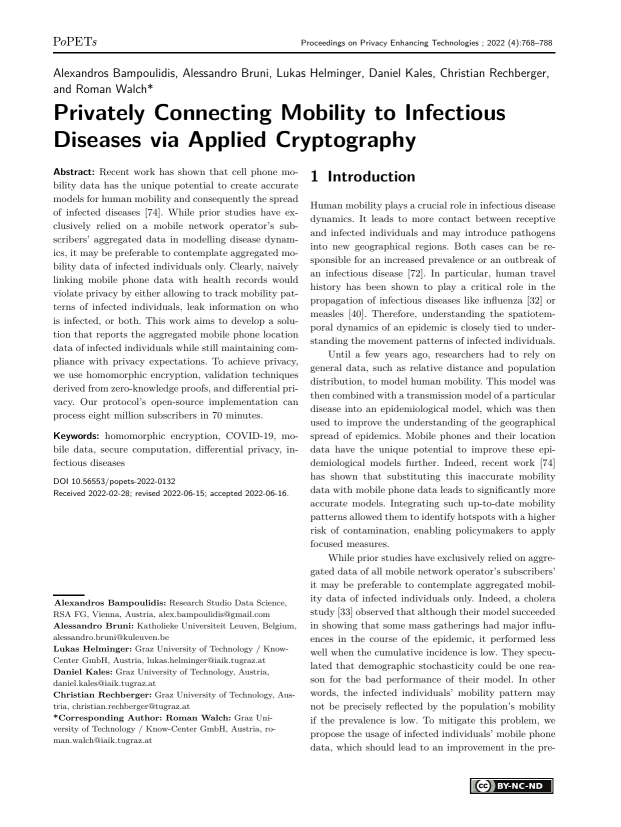Privately Connecting Mobility to Infectious Diseases via Applied Cryptography
Authors: Alexandros Bampoulidis (Research Studio Data Science, RSA FG, Vienna, Austria), Alessandro Bruni (Katholieke Universiteit Leuven, Belgium), Lukas Helminger (Graz University of Technology / KnowCenter GmbH, Austria), Daniel Kales (Graz University of Technology, Austria), Christian Rechberger (Graz University of Technology, Austria), Roman Walch (Graz University of Technology / Know-Center GmbH, Austria)
Volume: 2022
Issue: 4
Pages: 768–788
DOI: https://doi.org/10.56553/popets-2022-0132
Abstract: Recent work has shown that cell phone mobility data has the unique potential to create accurate models for human mobility and consequently the spread of infected diseases [74]. While prior studies have exclusively relied on a mobile network operator’s subscribers’ aggregated data in modelling disease dynamics, it may be preferable to contemplate aggregated mobility data of infected individuals only. Clearly, naively linking mobile phone data with health records would violate privacy by either allowing to track mobility patterns of infected individuals, leak information on who is infected, or both. This work aims to develop a solution that reports the aggregated mobile phone location data of infected individuals while still maintaining compliance with privacy expectations. To achieve privacy, we use homomorphic encryption, validation techniques derived from zero-knowledge proofs, and differential privacy. Our protocol’s open-source implementation can process eight million subscribers in 70 minutes.
Keywords: homomorphic encryption, COVID-19, mobile data, secure computation, differential privacy, infectious diseases
Copyright in PoPETs articles are held by their authors. This article is published under a Creative Commons Attribution-NonCommercial-NoDerivs 3.0 license.


